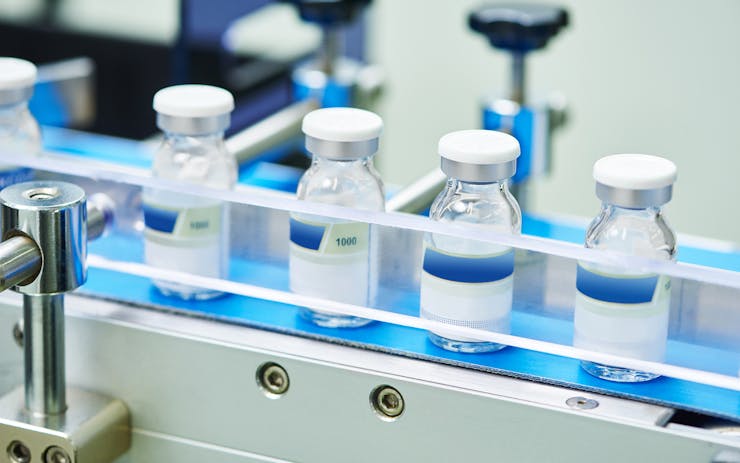Australian cannabis stocks are hot right now, soaring on the back of reforms that will allow companies to cultivate medical cannabis in the country. Growers and investors are ecstatic, but already a challenger is looming: synthetic cannabinoids, produced in a laboratory, which threaten to make traditional growing methods a thing of the past in the pharmaceutical industry.
Last year, Arizona-based drugmaker Insys Therapeutics donated $500,000 to fight the campaign to legalize adult-use cannabis in the state. But it wasn’t because the company’s chiefs are teetotalers. As the campaign was raging, Insys received US Food and Drug Administration approval for a lab-synthesized version of THC, in a drug called Syndros. Last month the DEA classified Syndros as a Schedule II drug—despite the fact that natural THC remains at Schedule I, more tightly controlled than opium or cocaine.
While Insys wasn’t the first drugmaker to synthesize cannabinoids, its message exemplifies the pharmaceutical industry’s approach: Cannabis is bad, except when we’re selling it to you. (The company is currently making headlines for for paying “speakers fees” to doctors who have had their licenses suspended for overprescribing Insys’s fentanyl spray in the midst of a nationwide opioid epidemic.)
What does all this mean for Australia’s cannabis market? One potential problem for Aussie growers and patients is that the country’s legislative framework around cannabis is focused on growing living plants and processing them into medicines. If global pharmaceutical companies can create and import equivalent medicines—effectively sidestepping Australia’s onerous, expensive cannabis regulations—the future of a national industry could be jeopardized.
That’s not to say Australia couldn’t jumpstart a synthetic-cannabinoid industry of its own. Botanix Pharma, a small Australian company, is betting on just that. The company is using synthetic CBD to develop possible medicines for skin conditions such as acne and psoriasis. Synthesizing CBD is important to ensure product purity, the company has said.
It’s not only growers who are dubious of synthetic cannabinoids, however. Proponents of whole plant medicine point to what’s known as the entourage effect, the notion that the array of compounds in cannabis complement one another and are more effective than a single cannabinoid taken alone. The entourage effect got a boost from a much-cited 2015 study out of Israel, and it continues to fascinate researchers. More than 20 studies have been published on the topic this year alone.
We’re still a long way from fully understanding the complex, subtle interactions of the many compounds in cannabis that act singly and in concert on our bodies. At this stage, even champions of the entourage effect tend to focus on interactions between small numbers of cannabinoids. The wide array of cannabinoids, and the possible combinations thereof, mean much more research is needed.
The clash between synthetic and whole-plant medical cannabis is an old one. Now the stage is set for it to play out Down Under. And while for now the focus is on medicine, there’s no reason why synthetic cannabis couldn’t one day replace adult-use products, too.





